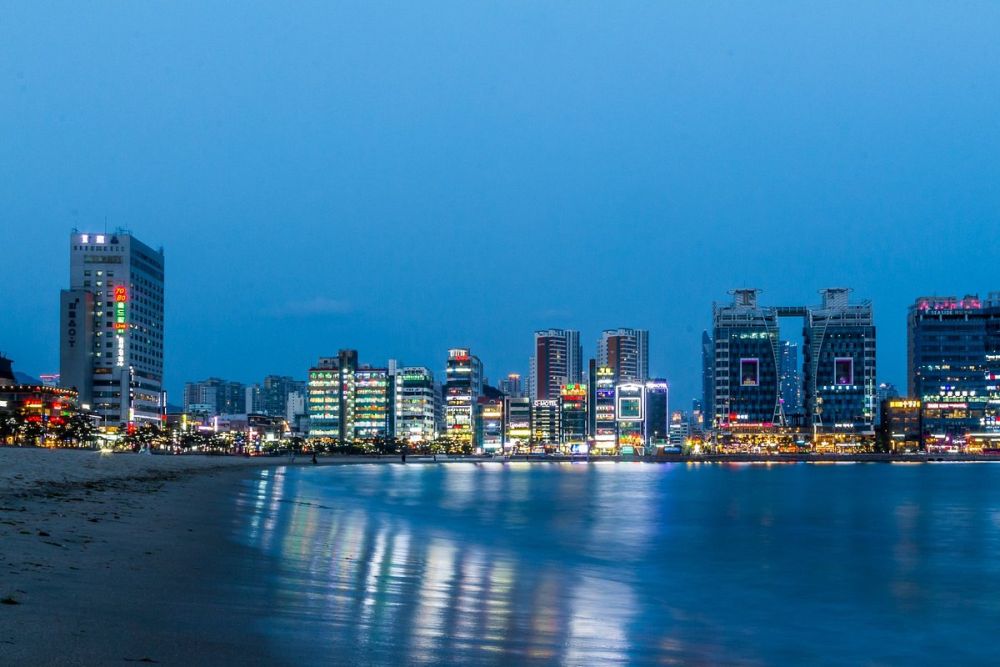

Gwangalli Beach in Busan, South Korea, has long been a beloved destination for both local and international tourists. Situated between Haeundae Beach and the Oryukdo Islands, Gwangalli emerged as a popular spot for those looking to enjoy the fine sand and clear waters while escaping the often crowded Haeundae Beach area.
Originally, Gwangalli Beach was a quiet fishing area, but as Busan developed and became a major port city, the beach's potential as a tourist hotspot became apparent. In the late 20th century, following South Korea's rapid economic development, Gwangalli began to attract more vacationers. The beach's popularity was catalyzed by its stunning views of the famous Gwangan Bridge, which sparkles beautifully at night and creates a picturesque landscape.
The turn of the millennium saw significant investments in improving the tourist infrastructure around Gwangalli Beach. Notable developments included an increase in seaside resorts, restaurants, cafes, and nightlife options, transforming the beach into a year-round destination.
In recent years, Busan has invested considerably in promoting Gwangalli Beach as a top tourist destination. The annual Busan Fireworks Festival, featuring spectacular displays with Gwangan Bridge as the backdrop, has helped to put Gwangalli on the global map. Additionally, the surrounding area has seen redevelopment, with art spaces and cultural events that cater to a diverse audience.
The recent tourism trend focuses on combining the natural beauty of Gwangalli Beach with cultural experiences. Ecotourism and adventure tourism are gaining momentum, where tourists engage in activities like water sports, yacht tours, and eco-friendly beachside yoga sessions. The interest in local cuisine has also seen a spike, with many visitors keen to try fresh seafood and traditional Korean dishes at the numerous restaurants and street food stalls around the beach.
Digital transformation has become integral, with the introduction of apps and platforms to guide tourists around Gwangalli Beach and offer real-time information on attractions and events. This approach has catered well to the millennial and Gen Z tourists, who prefer a technology-enhanced travel experience.
Gwangalli Beach has evolved from a simple seaside retreat to a vibrant, multi-faceted tourist destination. Its ongoing allure lies in its unique combination of natural beauty, modern innovation, and cultural richness. With further developments on the horizon, the history of tourism in Gwangalli Beach looks set to continue its exciting trajectory well into the future.